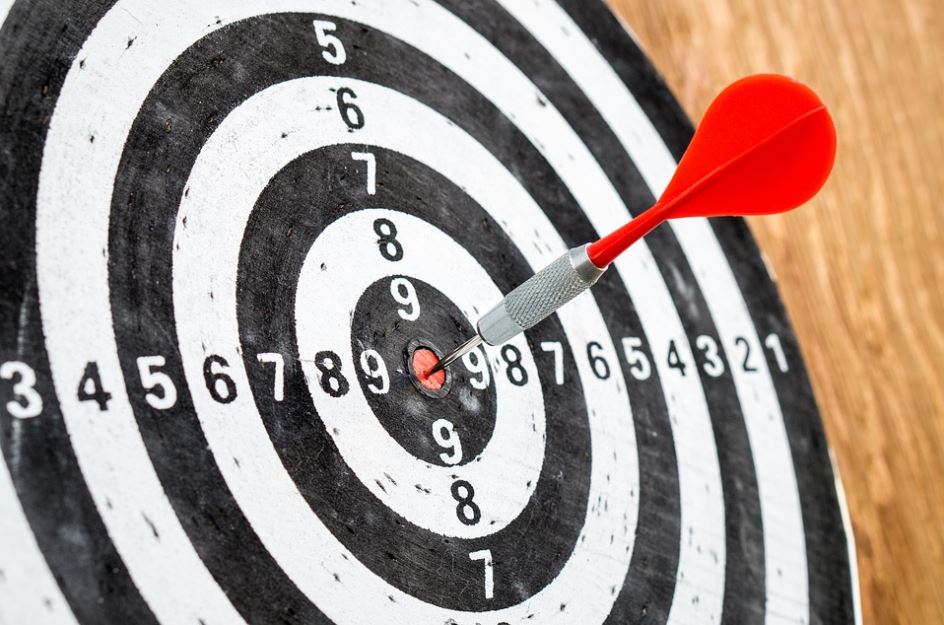Marketing has been around since the beginning of human civilization, and maybe even longer. Where ideas have been exchanged, where products have been exchanged, marketing has been. Technology has catalyzed a digital revolution across all industries. Marketing has been transformed by digitalization as much as any industry. Media and information have different means of being created and shared today. Businesses and companies now sell their products and services through different mediums and platforms. Entire economies have developed a digital means of processing payments and selling goods. People now have different patterns and behaviors for consuming information and media. The world as we know it has changed, human behavior has changed; therefore, marketing itself has changed.
It’s important for marketers to understand digital and how it’s affected marketing, because in order to survive and thrive people have to learn to adapt to change. Whether you are new to marketing or have been involved in marketing for many years, digital is a marketing medium that is extremely powerful and here to stay. Here are 7 ways digital has transformed marketing as we know it.
1. Digital Marketing Gives Fast Data
When digital mediums for advertising and marketing were born, so were hypertargeted data and analytics. Even in Google’s earliest days of advertising through banner ads, pay-per-click, and SEO, marketing data and analytics was a very detailed, hypertargeted wealth of information. Today it’s nothing short of incredible how much data and consumer information we have access to through accessible platforms such as CRM’s, lead generation funnels and tools, Google Analytics, SEO, and Facebook advertising. Marketers are using these digital tools every day to better understand their market. Marketers are also learning to better target and engage their market because of these digital marketing tools.

Now businesses of any size can leverage digital advertising for more return on investment on their marketing dollars. Even a few kids starting a scooter repair business from their living room can leverage digital marketing tools to better understand and engage their market, and generate highly qualified leads. The fact that two kids starting their first business can do this, shows just how transformative digital is for marketing.
2. Digital Marketing Reaches People When They’re Most Vulnerable
One of the key fundamentals of marketing is to deliver your message where the buyer is giving their most attention. At one or more points in their evolution, newspapers, magazines, television, radio all dominated consumer attention. As one of these information and media platforms rose and faded in popularity, consumer attention shifted to the next new media platform. People thought radio was a trend. Those same people said television wasn’t here to stay. Now that digital is on the table, marketers are forced to respect the consumer attention it yields.
The average Facebook user spends 58 minutes a day on it. 86% of U.S consumers use Google to research a product before making a purchasing decision. Social media advertising is a $36 billion industry. People will spend five years of their lives on social media alone.
3. Targeting: Digital Marketing Is Hypertargeted
Hypertargeted marketing means less cost, more effectiveness. With the digital marketing tools available today such as CRMs, SEO, lead generation tools and funnels, and Facebook and Google PPC advertising, hypertargeting is almost diabolical in its specificity. There’s nothing you can’t know about your target market and consumer behavior in 2017.

Mailer ads, billboards, direct marketing tactics, and other traditional marketing strategies are a blanket of awareness, and digital marketing tactics are heat seeking laser beams of awareness. Both are effective, both are important, but there is no doubt digital has transformed marketing as we know it.
4. Cost: Digital Advertising Costs Far Less Than Traditional
Digital advertising is so much cheaper than running traditional advertising campaigns. Everyone wants more ROI on their marketing dollars, so it’s very important traditional marketers understand they can be replaced by a digital marketer very quickly if they don’t learn the tools available to generate more ROI for their companies. If you take $25 and leverage it with Facebook ads, you might generate 100 leads, maybe even 10 sales. Can you imagine any traditional marketing medium generating 100 leads for $25?
5. Virality
Virality is a relatively new concept in marketing that’s been around since the dawn of social media. Before we called these wild consumer adoptions phenomena or sensations. Virality is an extremely valuable leverage for any business. Virality can take a business from 100,000 a year in sales to 1,000,000 overnight. Virality can create presidential meetings, celebrity endorsements, and lifelong legacy. Virality can take the creator of a home recorded video and turn them into an Academy Award winning movie director.
Traditional marketing is a one-way conversation, and people only adopt products they truly love and can share with friends in spite of the marketing behind that product. Virality gets people to share a product with 100 people at the click of a button.
6. Engagement

Engagement isn’t just a fluffy marketing term, it’s a genuine connection business have never until now been able to share with their consumers. Even on a B2B level, engagement has never been a more relevant term to businesses small and large. Engagement is not only relevant, it’s tangible and quantifiable. Even a small 10 person staff generating $1 million in revenue will deploy resources toward engagement in marketing. Why? Because businesses realize in order to make it you’ve got to build brand awareness and authority. The only way to build brand awareness and authority is to share a connection with your end user. Whoever a client or customer is, they’re waiting on the other end of the line staring at their iPhones and Galaxy phones waiting for digital information to tell them how to behave, what to buy, what to like, and where to be.
7. Competitive
Digital has shaped marketing to an even playing field for businesses small and large. Now the little guy with good content strategy and execution can get just as huge results. Even startups have access to digital marketing agencies and SEO consultants who can form-fit marketing strategies for extremely efficient marketing. A small company can now leverage their marketing budget against major brands on Facebook and Instagram and Twitter, and generate more business, more leads, and build brand awareness and authority in their local area and beyond.
Hypertargeting and retargeting allow companies to go deep in their local brand awareness and take it to an entirely new level. It also allows a soap company that’s being run out of a garage by two sisters in Billings, Montana to sell a bar or two of soap overnight to Gina in Venice, California who just searched for organic soap on Google and then got on Facebook and was hit with a retargeting ad that’s costing them 25 cents per conversion. Can Dial soap do that? Probably. Can they do it at scale? Maybe. Are they going to get the same ROI? Maybe, but maybe not.
Digital is a way of life, and it has definitely shaped and transformed marketing in its short tenure. Will digital be just a brief trend in human history? Who knows, was radio? Is television? The important thing to marketers is how important it is today. As Henry David Thoreau once said, “It’s too late to be studying Hebrew; it’s more important to understand even the slang of today.”








